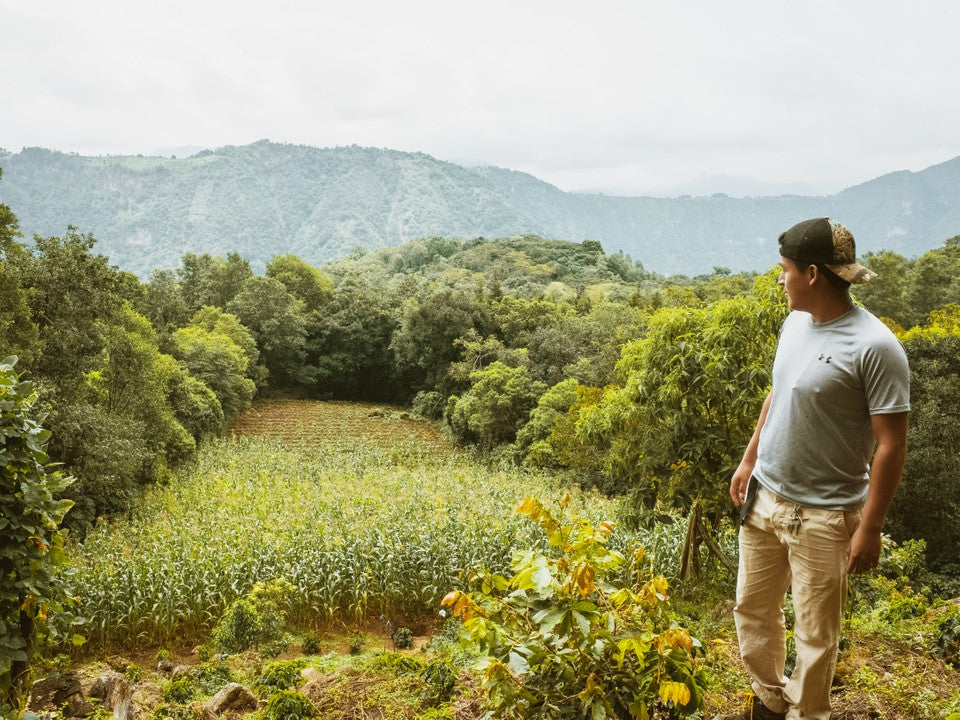“¡Vamos a mí casa!”, Manuel implores me. After an hour of showing me his coffee fields, this brawny yet soft spoken Guatemalan farmer invites me to his home for lunch. It’s a hot, dry and cloudless day in the middle of August (2019). Harvest season is still a few months away. The coffee cherries are still green and unripe, like my Spanish speaking skills. Manuel, in the off-season plants other crops such as: peanuts, avocados, papayas and tomatoes. Some of which I’ll taste for lunch.

I’m excited to eat but more thrilled to hear about this man’s story. As we enter the gates of his quaint and vibrantly painted home, his wife and daughters greet us. They tell us to sit and rest as they prepare our meal.
As Manuel fills my mug with coffee he tells me, “I’m old now. My horse carries my harvested coffees down the volcanoes. But when I was younger, I can bring down 68 Kilograms (150 pounds) on my back. I’m old now. The best I can do now is about 27Kg (60 pounds)”.

I roast coffee for Pachamama for a living. It can be laborious at times but hearing these words humbled me. I was humbled by the thought that farmers like him work tirelessly to plant coffee trees. They wait for about three to four years for them to mature and yield results. After harvesting the cherries by hand they sort them by size and density. Once they screen these coffees they bring them to de-pulping machines where they remove the outer-skin and pulp of the coffee cherry seed. Afterward they bring the seeds to the tanks to wash the left over mucilage before they dry. And finally the seeds are dried on drying beds before they are packaged and shipped all across the globe.

I want to be careful by not sensationalizing the work of these farmers like Manuel. I know they seek not for sympathy or pity but empowerment. They work with pride and dignity. I see this all in the face of the man I’m having lunch with.

I believe farmers like Manuel are empowered because of this business model, by ownership of the fields they tend to the cup of coffee in your hand. Pachamama farmers earn eleven times more than your conventional fair trade model and even more vs. a non-fair trade model. A typical supply chain focuses on a price to farmers for a raw commodity, the price does not accommodate the farmer’s costs of production. There is hardly zero value added for farmers. Zero profits. The true power lies in the ownership of coffee brands and coffee retailers in consuming countries. Pachamama farmers created a vertically integrated supply chain, owning the roasting, marketing and distribution of their coffee in the United States.
So as I break bread with Manuel, I’m both challenged and comforted by my responsibility back home. It takes me about eighteen minutes to roast a fifty pound batch of Guatemalan medium roast. Eighteen minutes in comparison to four years. I’m entrusted to try to take unroasted green coffee beans and turn them into something worth drinking and buying.
I have to periodically remind myself of farmers like Manuel who are the true heroes of the coffee supply chain. True heroes that are worth remembering and celebrating. I’m glad it doesn’t stop there, we remember and celebrate them through ownership and equity to truly empower their communities.



